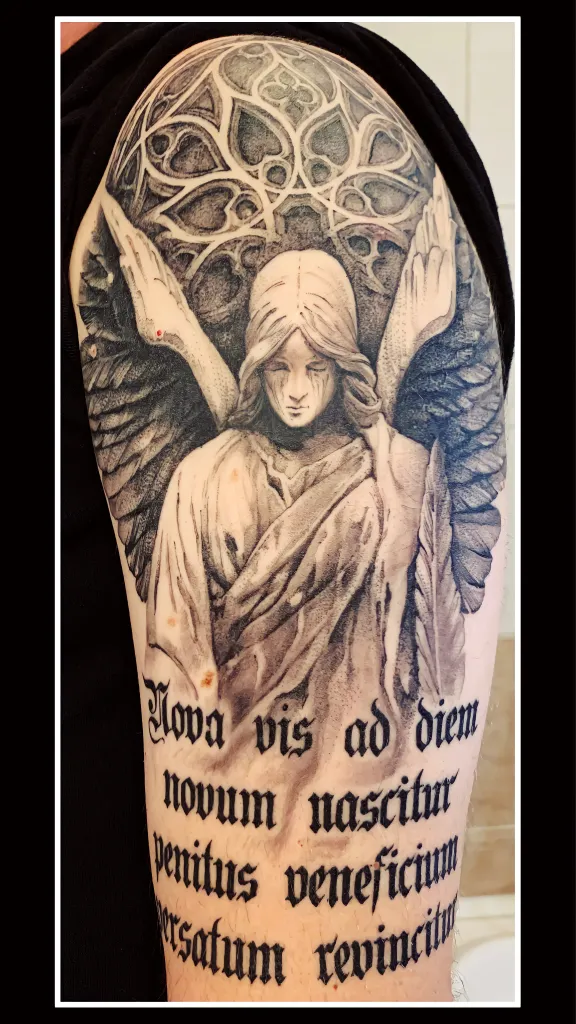(4) All Is Lost but Hope: The Literature That Inspires Me
It might sound unusual, but I often find an intimate and direct connection between certain texts and my musical ideas. In fact, more often than not, literature and music intertwine in my mind in ways that are difficult to separate. I’ve always been a bookworm, and every novel, poem, or even song lyric I’ve read has shaped the way I perceive not just art but life itself. These inspirations span an incredibly wide spectrum, covering vastly different genres and themes. Yet, if I had to distill their essence into a single line, I’d borrow the words of Virgin Black, pioneers of gothic metal: “All is lost but hope.”

Nova vis ad diem novum nascitur
Penitus veneficium versatum revincitur
(Lacuna Coil: Veneficium)
This duality of loss and hope has always captivated me. I occasionally experiment with writing poetry (Hungarian speakers can find a few older ones here), and I’ve found it much easier to express these emotions through words than through music. That said, sometimes I doubt these poems will ever become lyrics for my compositions, even though some were originally intended for that purpose. Beyond differences in rhythm and structure, there’s also the simple fact that I don’t want to lose the nuances of the Hungarian language in translation. Still, those who read them might catch glimpses of my thoughts – fragments of sadness, with occasional sparks of resilience.
Perhaps this balance between melancholy and defiance is what drew me so deeply into Lacuna Coil’s music over the years. Their ability to merge tragedy and struggle with grandeur and catharsis resonated with me profoundly. Even after countless listens, Veneficium still hits me with the same force, to the point where I felt compelled to have its Ancient Latin intro tattooed on my arm.
It’s no coincidence that books with an underlying sense of sadness or tragedy have always inspired me the most. Yet, the stories I cherish never dwell in suffering for its own sake – they always offer a sense of transcendence, a way forward. When people ask about my favorite books, I struggle to narrow it down, as my literary influences are as diverse as my musical ones. Among my most beloved authors are literary giants like Erich Maria Remarque (Three Comrades, Arch of Triumph) and Antoine de Saint-Exupéry (Night Flight, Wind, Sand and Stars), but also lesser-known and unfairly overlooked writers like Marguerite Radclyffe Hall (The Well of Loneliness). My fascination with melancholic atmospheres is also reflected in my admiration for early horror pioneers – Bram Stoker (Dracula), Mary Shelley (Frankenstein), and Edgar Allan Poe (The Fall of the House of Usher, The Cask of Amontillado).
Beyond these, I’m continually captivated by G.K. Chesterton (Heretics), whose paradoxical brilliance never ceases to amaze me, and the dreamlike, otherworldly storytelling of Jorge Luis Borges (The Aleph, Tlön, Uqbar, Orbis Tertius) and Gustav Meyrink (The Golem, The Angel of the West Window). J.R.R. Tolkien (The Lord of the Rings) transports me to a world of mythic grandeur, while Jack Kerouac (On the Road) invites me on an endless journey of discovery.
At first glance, these authors may seem to have little in common. Their backgrounds, themes, and philosophies are wildly different, but I’ve never found it difficult to connect with vastly different perspectives – whether in literature or in life. I’ve always sought unity with others through emotions and shared human experiences rather than ideological or theoretical arguments. To me, emotions always take precedence. While I hold a strong worldview of my own, I find genuine connection far more important than rigid intellectual divides.
And this is where music enters the picture again. As much as I resonate with books and poetry (and even write them myself), I still see music as the ultimate form of emotional expression – one that transcends the limitations of language entirely.
Without veering into the depths of linguistic philosophy, this is simply who I am.

